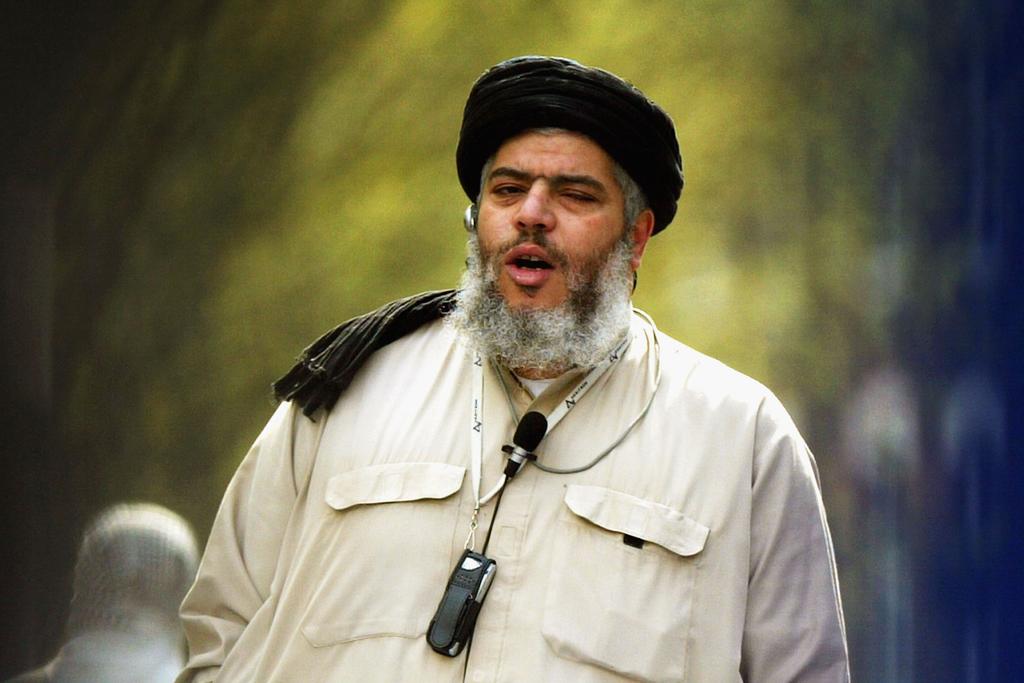European Court says Britain can extradite terror suspects to US
Radical Muslim cleric Abu Hamza on April 16, 2004 in London. The European Court of Human Rights approved Hamza’s extradition from the UK to the US on April 10, 2012, along with four other suspected terrorists, setting a precedent for extradition between the countries.
The European Court of Human Rights backed the extradition of radical cleric Abu Hamza and four other alleged terrorists to the United States, from the United Kingdom, according to the BBC.
The Strasbourg court said there would be no violation of human rights for the suspects facing life sentences and solitary confinement in a "supermax" prison, according to the BBC. The court's decision sets an important precedent for extradition from the UK to the US as it approves of the human rights conditions in America's maximum security prisons, making it more likely that the UK will send terrorism suspects to its ally.
Abu Hamza, who was imprisoned in the UK for inciting murder and racial hatred, is also sought by the US in connection with setting up a terrorist training camp in Bly, Oregon, in 2000, according to Bloomberg. The US is seeking to prosecute Hamza for supporting the Taliban with money and aiding a kidnapping plot in Yemen in 1998, which left four hostages dead.
More on GlobalPost: Yemen says dozens dead in Al Qaeda assault
The four other suspects include Babar Ahmad, Syed Talha Ahsan, Adel Abdel Bary and Khaled al-Fawwaz. The judges said they would reach a decision on Haroon Aswat, an aid to Hamza, after more information concerning his mental health, according to the Guardian.
The New York Times noted that based on the charges against them, the five could face lifelong prison sentences without parole "in maximum-security conditions, including concrete furniture, timed showers, tiny cell windows and no outside communications."
More on GlobalPost: Egypt: militants bomb Jordan-Israel gas pipeline
The defendants had complained that the conditions they would face if extradited to the US would be grossly disproportionate and amount to inhuman and degrading treatment, according to the AFP.
The court said the US would be justified in "considering them a significant security risk and in imposing strict limitations on their ability to communicate with the outside world" and noted that inmates were provided with "services and activities (such as) television, radio, newspapers, books, hobby and craft items, telephone calls, social visits, correspondence with families, group prayer which went beyond what was provided in most prisons in Europe," according to the AFP.
UK Prime Minister David Cameron said he was pleased with the ruling, saying, "It's quite right that we have a proper legal process, although sometimes you can be frustrated by how long things take," according to the BBC.
The US Justice Department said in a statement, "We look forward to the court's decision becoming final and to the extradition of these defendants to stand trial in the United States," reported the BBC.
More on GlobalPost: Should the EU give up on green energy?
The story you just read is accessible and free to all because thousands of listeners and readers contribute to our nonprofit newsroom. We go deep to bring you the human-centered international reporting that you know you can trust. To do this work and to do it well, we rely on the support of our listeners. If you appreciated our coverage this year, if there was a story that made you pause or a song that moved you, would you consider making a gift to sustain our work through 2024 and beyond?
